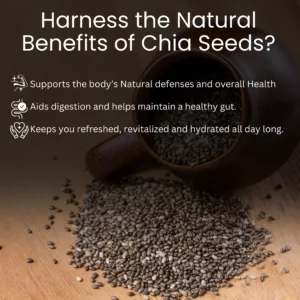Quinoa (pronounced KEEN-wah) has taken the health food world by storm, and for good reason. Once a sacred crop of the ancient Inca civilization, quinoa is now recognized globally as a superfood loaded with nutrients, fiber, and antioxidants. It is not just a food trend—quinoa offers real and lasting benefits for health, nutrition, and well-being.
In this detailed guide, we’ll explore everything about quinoa seeds, focusing on their health benefits, nutritional value, culinary uses, and role in modern diets, especially for those looking for plant-based or gluten-free options.
Many low-quality personal care products contain parabens, sulfates, phthalates, and artificial fragrances that can harm your body in the long term
🌾 1. What is Quinoa?
Quinoa is a seed derived from the Chenopodium quinoa plant. Though commonly considered a grain, it is technically a pseudocereal, meaning it is used like a grain in cooking but is not part of the grass family.
There are several varieties of quinoa, including:
White quinoa (mild flavor, soft texture)
Red quinoa (firmer, great for salads)
Black quinoa (earthy flavor, firm texture)
Tri-color blends (mix of all three)
Quinoa originated in the Andes Mountains of South America, particularly Peru and Bolivia. Today, it is cultivated worldwide, including in the Himalayan and northern regions of Pakistan.
🥗 2. Nutritional Powerhouse: What Makes Quinoa So Special?
Quinoa is a nutritional goldmine. Here’s what a 1-cup (185g) cooked serving of quinoa provides:
Nutrient Amount
Calories 222
Protein 8 grams
Carbohydrates 39 grams
Dietary Fiber 5 grams
Fat 3.5 grams
Magnesium 30% of RDA
Iron 15% of RDA
Zinc 13% of RDA
Manganese 58% of RDA
Phosphorus 28% of RDA
Folate (B9) 19% of RDA
Vitamin B1, B2, B6 Moderate levels
✅ Key Features:
Complete Protein: Contains all 9 essential amino acids, rare for plant-based foods.
Gluten-Free: Perfect for those with celiac disease or gluten sensitivity.
Low Glycemic Index: Helps regulate blood sugar levels.
High in Fiber: Supports digestion and weight loss.
💪 3. Health Benefits of Quinoa Seeds
3.1. Excellent Source of Plant-Based Protein
Quinoa is a complete protein, meaning it contains all nine essential amino acids your body cannot produce on its own. This makes it an ideal protein source for vegetarians and vegans.
“One cup of quinoa offers the same protein quality as meat without saturated fats or cholesterol.”
3.2. High Fiber Content Aids Digestion
Dietary fiber is essential for healthy digestion, and quinoa contains 5 grams of fiber per cup—more than most grains.
Benefits include:
Promotes regular bowel movements
Prevents constipation
Improves gut microbiome
Aids in weight management
3.3. Supports Weight Loss Goals
Thanks to its high protein and fiber content, quinoa can help you:
Stay full longer
Reduce cravings
Lower overall calorie intake
Also, its low glycemic index means no sugar spikes or crashes, helping maintain consistent energy levels.
3.4. Packed with Antioxidants
Quinoa is rich in flavonoids like quercetin and kaempferol, which:
Combat inflammation
Protect against free radical damage
Support anti-aging and disease prevention
3.5. Supports Heart Health
Magnesium, potassium, and fiber in quinoa are great for cardiovascular health. Regular consumption can:
Lower blood pressure
Reduce bad cholesterol (LDL)
Promote healthy arteries
3.6. Beneficial for Diabetics
Because of its complex carbohydrates and low glycemic index, quinoa does not spike blood sugar levels. It is a smart carb choice for people managing type 2 diabetes.
3.7. Boosts Brain Function
The iron, magnesium, and B-vitamins in quinoa contribute to:
Better cognitive function
Improved memory and focus
Reduced risk of neurodegenerative diseases
3.8. Good for Skin and Hair
The protein, zinc, and antioxidants in quinoa help:
Repair skin tissues
Support collagen production
Prevent dry skin and wrinkles
Improve hair texture and strength
🧠 4. Mental and Emotional Benefits
Quinoa contains tryptophan, a precursor to serotonin—the “feel good” hormone. This means quinoa can help:
Enhance mood
Reduce stress and anxiety
Support better sleep quality
🧒 5. Quinoa for Kids and Pregnant Women
Quinoa is especially useful in:
Children’s growth diets for protein and minerals
Pregnancy and breastfeeding, due to its high content of folate, iron, and protein
🍽️ 6. How to Include Quinoa in Your Diet
Quinoa is incredibly versatile. Here’s how you can use it:
Popular Uses:
Quinoa bowls (add veggies, beans, sauces)
Quinoa salad
Breakfast porridge
Stir-fries
Stuffed peppers
Baked goods (quinoa flour)
How to Cook Quinoa:
Rinse thoroughly (removes bitter saponins)
Use a 2:1 ratio of water to quinoa
Bring to a boil, cover, and simmer for 15 minutes
Fluff with a fork and serve
Note Choosing the best quinoa seeds for yourself in Pakistan depends on your needs — whether it’s for personal health, cooking, or even cultivation.
🌿 7. Quinoa in Special Diets
Diet Type Why Quinoa Fits
Vegan/Vegetarian Plant-based complete protein
Gluten-Free Naturally gluten-free
Diabetic Diet Low GI, high fiber
Paleo/Flexitarian Whole food, unprocessed
Weight Loss Plans Satiating, low-calorie density
Halal/Kosher Naturally compliant
🇵🇰 8. Quinoa in Pakistan: Growing Popularity
In recent years, quinoa has gained attention in Pakistan for its impressive health benefits. It is now available in most supermarkets, health stores, and online platforms.
Pakistani Culinary Uses:
Mixed with daal chawal
Quinoa chapatis and parathas
Added to haleem and pulao
As a breakfast substitute for oats
Benefits for the Local Market:
Local cultivation supports farmers in regions like Gilgit-Baltistan
Helps tackle malnutrition and protein deficiency
Affordable superfood compared to imported health supplements
🛒 9. How to Choose the Best Quinoa
Look for:
Organic, unpolished seeds
Proper labeling and expiry date
Whole grain texture, no broken seeds
Brands with clean packaging and good reviews
⚠️ 10. Possible Side Effects and Cautions
While quinoa is safe for most, some precautions include:
Allergic reactions: Rare but possible
Oxalates: May affect people with kidney stones
Saponins: Rinse quinoa well to remove bitterness
Moderation: As with all foods, balance is key
📌 11. Summary of Benefits
Benefit Details
Complete Protein Ideal for plant-based diets
High in Fiber Supports digestion and weight loss
Rich in Antioxidants Fights inflammation and aging
Heart Healthy Lowers cholesterol and blood pressure
Diabetes-Friendly Low GI, slow carb digestion
Versatile and Gluten-Free Fits many diet plans
Boosts Brain, Mood & Skin Enhances overall mental and physical wellness
🧾 12. Final Thoughts
Quinoa is not just a healthy seed—it’s a lifestyle choice. Whether you’re aiming to eat cleaner, build muscle, manage weight, or just feel better, quinoa can play a vital role. Its powerful nutrient profile and culinary flexibility make it a superfood worth adding to your everyday meals.
Incorporating quinoa into your routine can transform your diet and improve your health—naturally, affordably, and deliciously.








